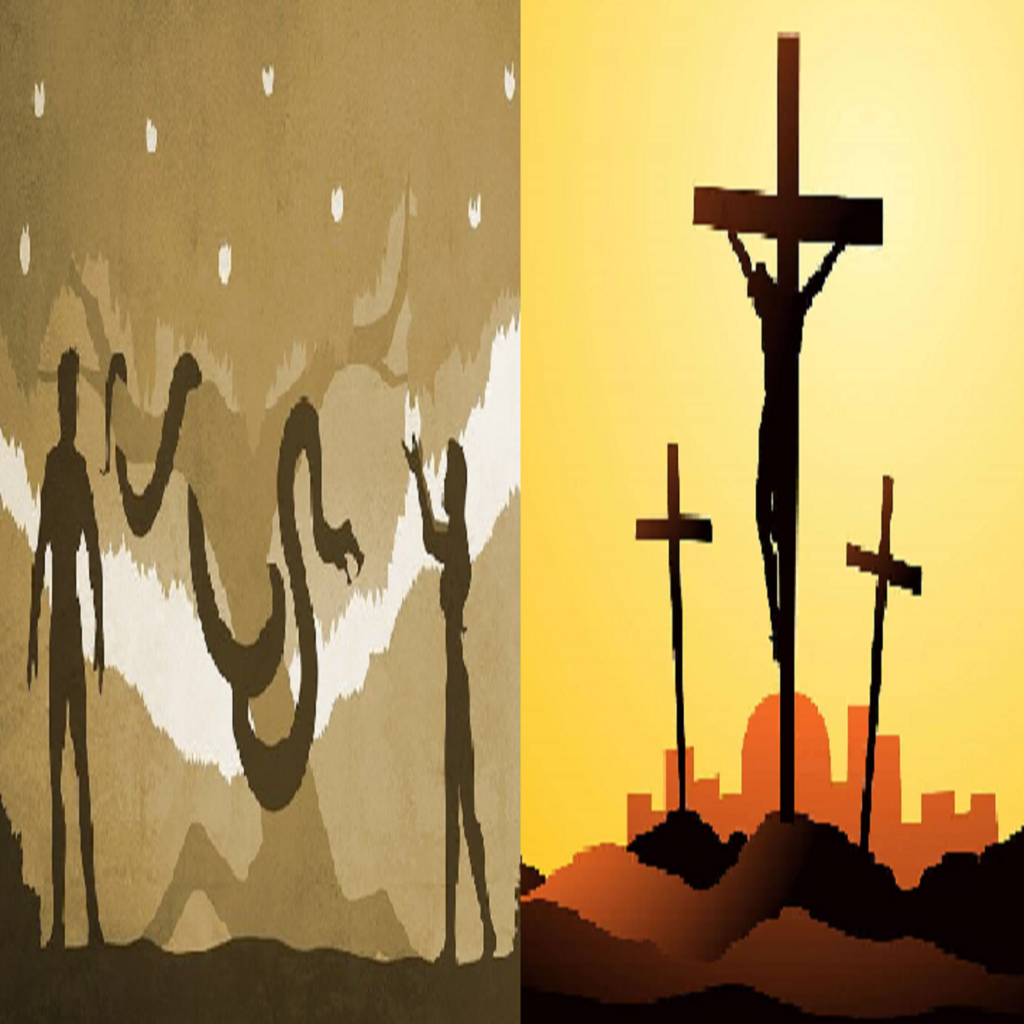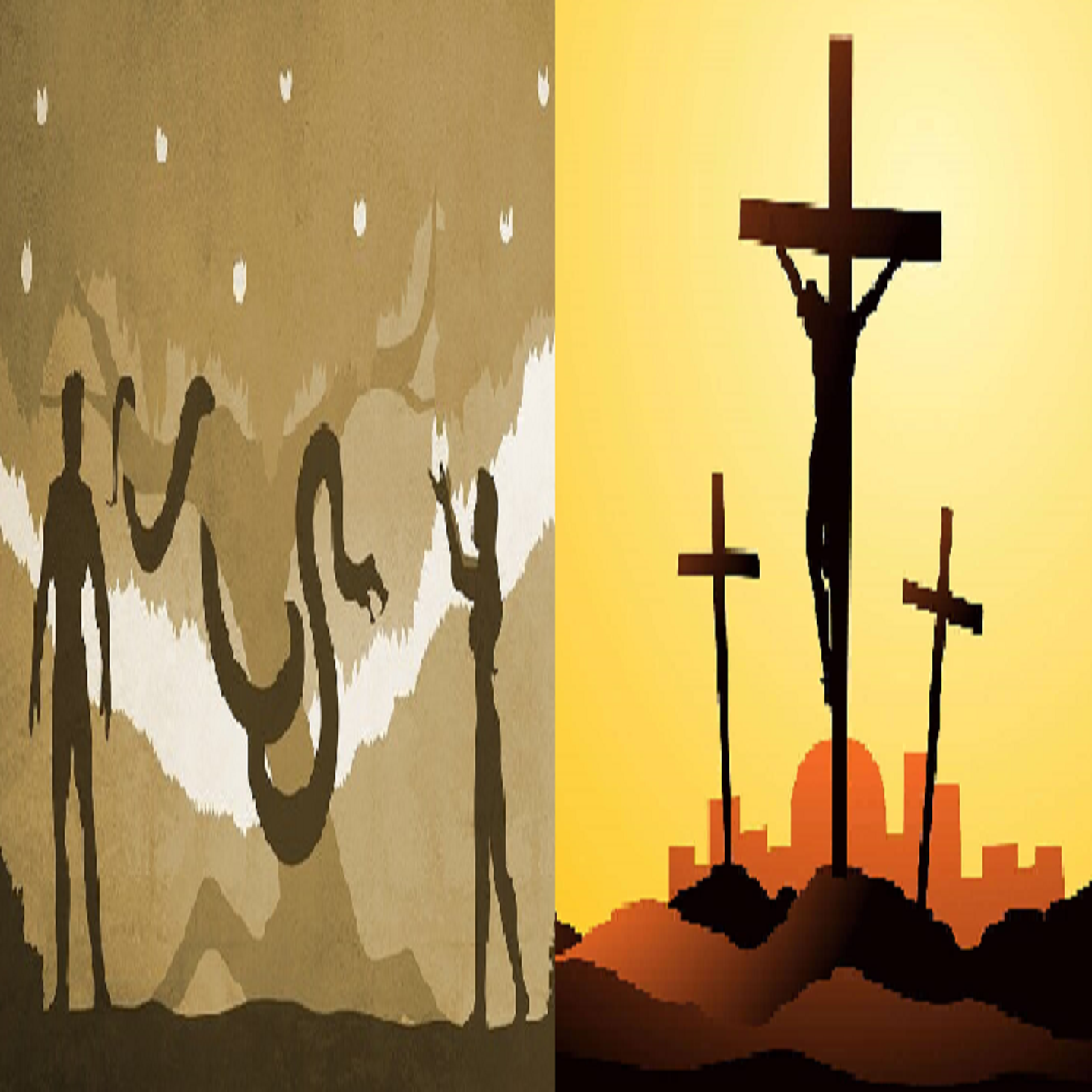
From Adam to Christ
Scripture Passage (Romans 5:12-21)
Therefore, just as through one person, sin entered the world, and through sin, death, and thus death came to all, inasmuch as all sinned for up to the time of the law, sin was in the world, though sin is not accounted when there is no law. But death reigned from Adam to Moses, even over those who did not sin after the pattern of the trespass of Adam, who is the type of the one who was to come.
But the gift is not like the transgression. For if by that one person’s transgression the many died, how much more did the grace of God and the gracious gift of the one person, Jesus Christ overflow for the many. And the gift is not like the result of the one person’s sinning. For after one sin there was the judgment that brought condemnation; but the gift, after many transgressions, brought acquittal. For if, by the transgression of one person, death came to reign through that one, how much more will those who receive the abundance of grace and of the gift of justification come to reign in life through the one person, Jesus Christ.
In conclusion, just as through one transgression condemnation came upon all, so through one righteous act acquittal and life came to all. For just as through the disobedience of one person the many were made sinners, so through the obedience of one the many will be made righteous. The law entered in so that transgression might increase but, where sin increased, grace overflowed all the more, so that, as sin reigned in death, grace also might reign through justification for eternal life through Jesus Christ our Lord.
Church teaching and commentary
In Rom 5:12-21, St. Paul preaches on the sin of Adam vis-à-vis the grace of God through Christ. He said, “Therefore, just as through one person, sin entered the world, and through sin, death, and thus death came to all men, inasmuch as all sinned.” (Rom 5:12) St. Paul tells us that it was through the sin of Adam, the first man, that sin entered the world. The sin of Adam was his disobedience to God’s will; God said to Adam: “You are free to eat from any of the trees of the garden except the tree of knowledge of good and evil. From that tree you shall not eat; when you eat from it you shall die.” (cf. Gen 2:16-17)
Adam and his wife Eve ate from the forbidden tree, and because of their disobedience to God, sin entered the world; death also entered the world, and all men became subject to sin and death. The word “sin,” as used by St. Paul, refers to the dreadful power that has gripped humanity – an evil power which makes man revolt against his Creator, and makes man put his own desires and interests above both the holy will of God and the good of his fellow man.
St. Paul also said, that “for up to the time of the law, sin was in the world, though sin is not accounted when there is no law.” (Rom 5:13) Here, “law” refers to the Old Law revealed by God to Moses. That “sin is not accounted when there is no law” does not mean that sin did not exist in the world before the Old Law; but does it mean that prior to the Old Law or Commandments, man did not know of sin? No, because before the Old Law, man had what is called “natural law.”
Man participates in the wisdom and goodness of the Creator who gives him mastery over his acts and the ability to govern himself with a view to the true and the good. The “natural law” expresses the original moral sense which enables man to discern by reason the good and the evil, the truth and the lie: The natural law is written and engraved in the soul of each and every man, because it is human reason ordaining him to do good and forbidding him to sin. (CCC 1954)
Someone might ask: If there is already “natural law,” then why would there still be a need for the Commandments? The Catechism explains that “natural law,” which is “the command of human reason, would not have the force of law if it were not the voice and interpreter of a higher reason to which our spirit and our freedom must submit to.” (CCC 1954) In other words, the Commandments, given by God, were necessary in order that man can, through his own free will, submit to God’s authority.
St. Paul continues, “But death reigned from Adam to Moses, even over those who did not sin after the pattern of the trespass of Adam, who is the type of the one who was to come.” (Rom 5:14) The righteous ones like Abraham, Moses, the Judges, David, etc. who lived before Christ were ‘types’ of Christ. However, despite their righteousness, they were still subject to death; after they died, they had to wait for the Christ in Sheol, who descended to them and opened the gates of heaven.
St. Paul concludes: “But the gift is not like the transgression. For if by the transgression of the one, the many died, how much more did the grace of God and the gracious gift of the one man, Jesus Christ, overflow for the many.” (Rom 5:15) St. Paul makes it clear that the gift of Christ is in total contrast to the disastrous effects of the virus of sin that invaded humanity through Adam’s sin. Sin is like a virus, in the sense that it can infect anyone. But what can be done against this virus? To this, St. Paul said that, “The law entered in, so that transgression might increase, but where sin increased, grace overflowed all the more, so that, as sin reigned in death, grace also might reign through justification for eternal life through Jesus Christ our Lord.” (Rom 5:20-21) Here, St. Paul declared that God’s grace outmatches man’s proclivity to sin. No matter how trapped one might feel by particular sins, God’s grace gives hope for future liberation from sin. But more than that, those who have lived to tell of their liberation from particular sins can attest to the power of God’s grace over sin.
- What St. Paul calls the “sin of Adam” is what the Church calls “original sin.” What sin was committed by Adam, and in what ways do you see this sin manifested in the world today?
- Even before the Commandments were revealed by God to Moses, man already has “natural law” in his heart. Would you say that the Commandments ratify natural law? Why?
- Share an experience in which grace changed your life.
